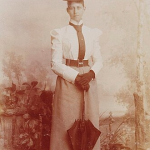By Nathaniel Aiko
The Year of Promises
Tarang was ten years old when white banners fluttered across the longhouse at Simanggang, the wind catching the silhouette of a crown and a shield.
‘Centenary,’ they called it, the hundredth year of the Raj of Sarawak under the Brooke Dynasty.
His aki spoke of the first Rajah, James Brooke, with a mix of awe and suspicion. But the centenary celebrations in Kuching were too far for a village boy. Instead, he watched as his father carved an engkatak, a ceremonial war totem, to mark the occasion.
‘Change is coming,’ his father said, sharpening his parang (machete). ‘Rajah Charles Vyner promises a constitution.’
News trickled in slowly like the current of the Batang Lupar River. The Rajah had declared Sarawak a constitutional monarchy. Tarang, squatting beside the api dapur (hearth fire), listened as his uncle read out a Malay-language newspaper:
‘Perlembagaan baru memberi hak rakyat dan pembaharuan (New Constitution ensures rights and reforms to the people).’
The longhouse murmured approval, though some elders raised eyebrows.
‘Nama guna undang putih untuk orang Iban? (What use are white man’s laws for us Iban people?)’ one scoffed.
Still, the promise of land reforms, native rights, and council participation stirred something in Tarang. For the first time, he imagined a future where orang asal (the native people) had a voice beyond the jungle. And maybe one day modernity can finally reach his little village in Batang Lupar.
But the promises did not last. In December, the skies changed. The Japanese came with thunder. The centenary, the constitution, became part of a forgotten yesterday.
Japanese Occupation: The Officer in the Jungle
The Kempeitai came like a storm, but Tarangremembered Officer Suzuki like a quiet rain. It was 1943. Tarang was twelve and fishing with a bamboo rod near the riverbank , when he saw the khaki figure of a man crouched beside the river, watching the fish.
‘Sakana, oiishi desu,’ said the man with a smile, startling Tarang.
He held up a small fish.
‘Good fish.’
The man was Lieutenant Suzuki, a Japanese officer tasked with patrolling upriver villages. Unlike others, Suzuki was gentle. He brought rice, salt, and sometimes medicine for the locals. He spoke simple Malay and asked about Iban customs. Tarang, wary at first, began to speak with him about the spirits of the jungle, about Gawai, about how the river spoke to those who listened.
‘Anata wa yoi shōnen desu,’ Suzuki once said, giving Tarang dried seaweed.
‘You are a good boy.’
But war left little space for innocence. Tarang’s cousin, Lembat, was taken to dig trenches near Kuching and never returned. Rumours whispered of torture, of cruelty under the Kempeitai. Yet Suzuki never raised his voice. He once gave Tarang’s mother a packet of medicine when she lay sick with fever.
One day, Suzuki did not return. Another officer came, who was harsher and cruel. Janting never learned what happened. Some said Suzuki was reassigned. Others whispered he was court-martialed for disobedience.
To this day, Tarang remembers the fish by the river, and a Japanese man who bowed before leaving, whispering,‘sumimasen (forgive me).’
Under the Union Jack
By 1946, the war had ended. Tarang was fifteen when Vyner Brooke ceded Sarawak to the British Crown.
‘Tanah kitai dijual baka sapi ba pasar (Our land sold like cattle at a market),’ an elder spat.
The Brookes were gone. Now came the British Colonial Service with their thick accents and red-faced administrators.
Tarang, now working in Simanggang as a boatman, met Rinya, a kaban from Kapit. She had studied under mission sisters and spoke English better than most. She laughed at his jokes and scolded him when he was late. They married in 1952, beneath the Union Jack flying from a flagpole near the Resident’s office. The church was wooden, the hymns in Iban.
‘Aku sayau nuan,’ he whispered at the altar, and she smiled, her hand in his.
Life was hard but full. Janting worked at the Public Works Department, helping build roads linking rumah panjang to market towns. He saved up for a bicycle. Rinya gave birth to their son, Gubak, in 1954, and their daughter, Bidah, in 1957. They moved into a government quarters, a boxy home with tin roof and a tangki air hujan (rainwater tank), the main source of clean water for domestic use prior to mass indoor plumbing.
Despite the hardship, there was hope. New schools opened. The Tuai Rumah received letters from civil servants instead of Rajahs. On Sundays, Tarang wore a pressed shirt, Rinya carried her Bible, and the children ran barefoot through puddles.
They were no longer ruled by Rajahs. But the British were still white men with pens and rifles. And whispers grew louder about merdeka.
Independence: Malaysia and the Morning Dew
It was September 16, 1963. Tarang was thirty-two, his son Gubak in school uniform, while his daughter braided flowers into her hair. From the verandah of his wooden house, Janting watched as the flag was hoisted, the Jalur Gemilang, red and white stripes climbing the pole where once flew the Union Jack.
‘Apak, kitai tok merdeka (Father, are we free?)’ asked Gubak.
‘Ya, anak. Sarawak masuk Malaysia hari tok (Yes, son. Sarawak has joined Malaysia today),’ Tarang said.
He took a deep breath.
‘Kita sama dengan orang Malaya, Sabah, dan Singapura (We are one with the Malayans, Sabahans, and Singaporeans).’
The village had celebrated all week. Chickens were slaughtered, rice wine flowed, and ngajat dances echoed through the longhouse floor. Elders gave speeches, some in broken Bahasa Malaysia, others in Iban. The mood was one of pride, but also uncertainty.
Lina, ever wise, murmured, ‘Tok ukai penghabis crita, tok pemula crita baru (This is not the end of a story, it is the start of a new one).’
That night, under kerosene lamps, Tarang told his children of Officer Suzuki, of the centenary constitution, of marrying under the British flag. He spoke of the jungle, of adat lama, and of hope. He did not know what the future held, only that their people would not remain anak dalam hutan (jungle child), voiceless and forgotten.
‘Ngau tanah, ai, langit, kitai empu samoa tok (with land, water, sky, it is all ours)’ he said.
And as dawn broke over Batang Lupar, Tarang stood silently, the morning mist curling around his ankles. The forest, like him, stood watching. Waiting.
For the next story to begin.
(1043 words)
Iban Words and their meanings:
- Aki: grandfather
- Engkatak: carved guardian figure or war effigy
- Parang: machete
- Api dapur: hearth fire
- Orang asal: indigenous people
- Kempeitai: Japanese military administration
- Gawai: The most important Iban traditional festival, the rice harvest festival
- Kaban: friend or close companion
- Rumah panjang: longhouse
- Tangki air hujan: rainwater tank
- Tuai Rumah: longhouse headman
- Ngajat: traditional Iban dance
- Adat lama: ancestral customs
- Ngau: with







